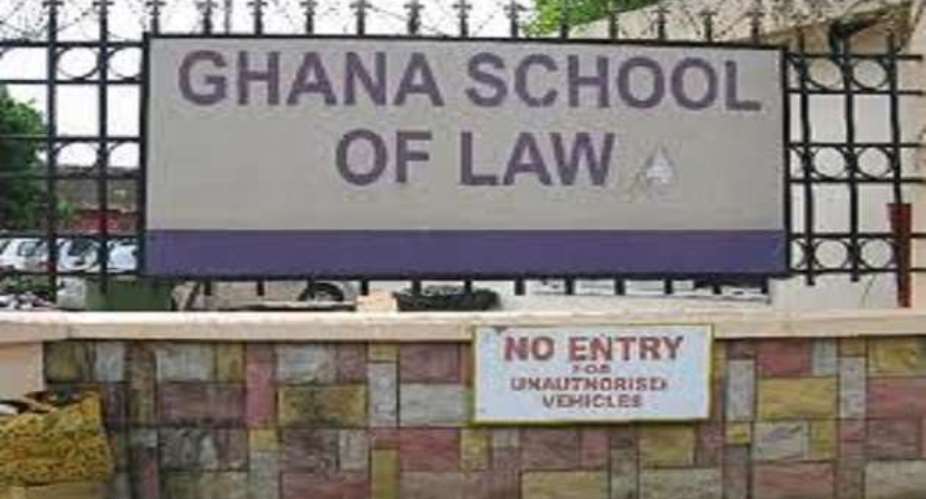There is absolutely nothing new or flabbergasting here. Indeed, I have been following the seemingly protracted debate over the need to exponentially expand the intake of law school graduates who opt to train at the Makola University, so-called, or, properly speaking, the Ghana Law School; and, in general, I am in perfect agreement with the apparent need for entrance requirements to be significantly reformed without needlessly in any way compromising the caliber of candidates admitted for training and the quality of legal training in the country. The problem, as I presently see it, and I promptly own that I am not a legal maven or one formally trained in the profession, may very well have to do with the content of instruction and the pedagogical process of instructing our law students, and the fact of whether these factors or processes gibe with the epistemic requirements and expectations of the country’s bar certifying establishment, namely, the General Legal Council (GLC) – (See “Mass[ive] Failure As 81 Percent of Law Students Fail to Make It to the Bar” MyJoyOnline.com / Ghanaweb.com 2/20/18).
In other words, what we ought to be critically interrogating regards the quality of the instruction of our law school graduates, and whether by the time that they decide to sit for the Bar Examinations, these graduateswould have been adequately prepared to ace or pass their bar exams in significant numbers commensurate with their academic and professional preparation. Put more pointedly, is there an established credible mechanism by which the level and quality of instruction of our law students are assessed, beyond the general formality of institutional accreditation and the periodic renewal of the same?
This is where the crux of the problem appears to be coming from, as far as I am able to see. Years ago, we had a similar problem at the secondary school level vis-à-vis the conundrum of an examination process in which the exam questions were routinely set by university professors but graded by secondary school teachers, the primary instructors of these secondary school students, most of whom although university educated, were not necessarily of the same level of academic and professional accomplishment and/or orientation.
In simple terms, the problem had to do with incompatible pedagogical expectations between academics and/or examiners of two significantly disparate levels of professional preparation, cognitive temperament, orientation, productivity and outcomes. But, of course, what we also need to be demanding, if such process does not already exist, is the urgent need for the periodic invitation of highly reputable external observers to assess the fact of whether interviews of law school entrants conducted by members of the General Legal Council (GLC) meet the best institutional practices around the globe. Merely pooh-poohing the GLC on grounds of the massive failures of this year’s aspiring licensed legal practitioners to pass their Bar Exams in record numbers is rather soft-brained. We know it is soft-brained because barely three or four years ago, an international survey of some 146 countries conducted by the highly respected Organization of Economic Cooperation and Development (OECD), had Ghanaian public school students ranking butt-naked last, as New Yorkers are wont to say.
In other words, as responsible citizens, academicians and professionals, we need to dispassionately confront the fact that the country’s public education system has not been turning out the most competent pupils and students for about a whole generation now. And until very recently, our politicians were studiously fixated on everything but the radical reformation and upgrading of the way that education and teaching are done in this country. Like all things existential and cultural, and socioeconomic and political as well, Ghanaian leaders preferred to take care of their own close relatives and friends, while the rest of us proverbial “Wretched of the Earth” were callously and unconscionably afforded the peacock treatment.
*Visit my blog at: kwameokoampaahoofe.wordpress.com Ghanaffairs





 We’ll no longer tolerate your empty, unwarranted attacks – TUC blasts Prof Adei
We’ll no longer tolerate your empty, unwarranted attacks – TUC blasts Prof Adei
 Bawumia donates GHc200,000 to support Madina fire victims
Bawumia donates GHc200,000 to support Madina fire victims
 IMF to disburse US$360million third tranche to Ghana without creditors MoU
IMF to disburse US$360million third tranche to Ghana without creditors MoU
 Truck owner share insights into train collision incident
Truck owner share insights into train collision incident
 Paramount chief of Bassare Traditional Area passes on
Paramount chief of Bassare Traditional Area passes on
 Two teachers in court over alleged illegal possession of BECE papers
Two teachers in court over alleged illegal possession of BECE papers
 Sunyani: Victim allegedly shot by traditional warriors appeals for justice
Sunyani: Victim allegedly shot by traditional warriors appeals for justice
 Mahama vows to scrap teacher licensure exams, review Free SHS policy
Mahama vows to scrap teacher licensure exams, review Free SHS policy
 Government will replace burnt Madina shops with a new three-story, 120-store fac...
Government will replace burnt Madina shops with a new three-story, 120-store fac...
